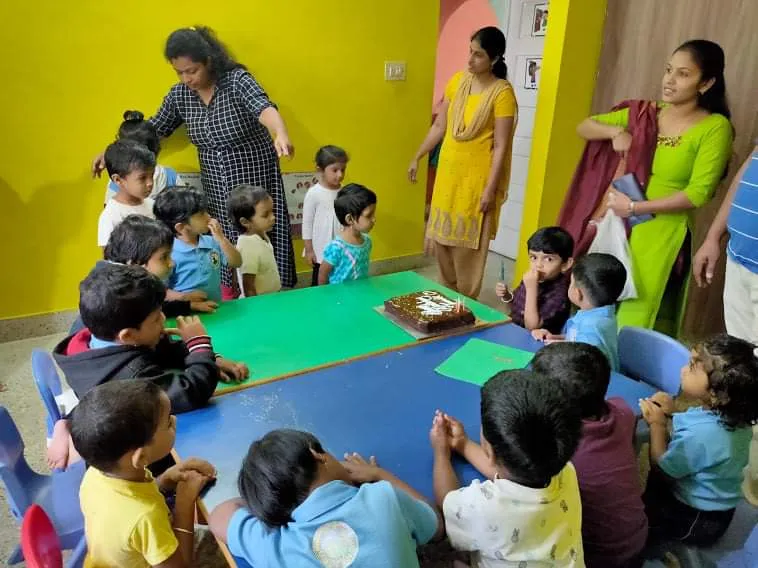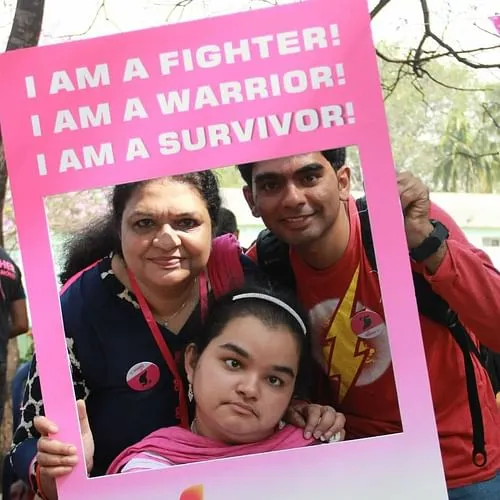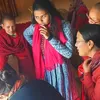Why Farida Rizwan believes every child deserves an inclusive education
Farida Rizwan started My Giggle Garden, a pre-school in Bengaluru, where children with special needs would learn and play alongside children without disabilities.
A casual conversation with her daughter Farheena one evening, six years ago, was to change the course of Farida Rizwan’s life yet again. At various points, Farheena, who has special needs kept saying “you people” and “we people.” It was the first time Farida realised her daughter saw herself as different from others, and despite every effort, still felt excluded.
“I realised people still treated Farheena differently and wanted to do something to change this for other children with special needs. The only way to do this was to build that perception early. That’s why I decided to start a pre-school where children with special needs would learn and play alongside children without disabilities,” she says.

Children, both with and without special needs, learn and play together at My Giggle Garden
My Giggle Garden opened its doors on June 15, 2017. Among the students who joined was Disha, who has Down’s Syndrome. “We decided to have a 1:8 ratio of children with special needs to those without because I did not want this to become yet another special needs school.”
The students were charged a small fee, which covered textbooks and Montessori lesson plans.
The early days were challenging. Several parents were hesitant to send their children to study with those who had special needs. “There were people who said that they did not want their child to study with a ‘mad’ child. They thought their children would get bitten or attacked in some way,” she says.
Building a dream
But Farida is no stranger to challenges. In 1996, she became the fourth member of her family to be diagnosed with cancer. Her father was diagnosed in 1992, her sister in 1994, and her own diagnosis happened in 1996. Her mother succumbed to breast cancer 10 years later in 2006. Farheen was identified as having special needs around the time her sister was in the final stages of her treatment.
“I did wonder if cancer would make me more insensitive. But I changed. I started listening to others, understanding their pain, and what they were going through. I started wanting to be there for people.” She says, “I divide my life into BC and AD – Before Cancer and After Diagnosis. For better or for worse, I was never the same person again.”
Getting the funds to start My Giggle Garden was also not an easy task. Her son Rayyan, who has always been a pillar of support through all her adversities, offered to invest in his mother’s dream. “He had just been given a large bonus at work and offered it to me. That together with my savings got us this space where we could set up the school. But it was rundown and we had to do everything from relaying the floors to installing CCTV cameras.”
Changing perceptions
The early days were not easy. Parents were apprehensive about sending their children to this kind of integrated and inclusive school. The children, however, had no problems.
“Research has shown that perceptions are formed by the time we are six years old, and before that, we accept things without judgement. The children, who were in the two-to-four-year age group, were curious and wanted to play with Disha. It was the parents who told them to stay away from her,” says Farida. However, within a year, things began to change.
“When the parents saw that there was nothing to fear and that their children were having a positive impact on the children with special needs, who would imitate them and learn, they started appreciating the work we were doing,” says Farida.
Everything seemed to be going well. “We had started making a profit and the children were enjoying themselves so much, they were reluctant to leave at the end of the day. But then, the pandemic struck, and we were forced to abandon classes.” Then, the landlord of the space they were using decided to hike the rent, which meant Farida was forced to indefinitely close in-person classes.

Farida Rizwan with her daughter Farheena and son Rayyan
While she has moved the lessons online, Farida is looking for a space to restart her dream of inclusive education. “I’ve had many offers to buy My Giggle Garden, but everyone who was interested wanted the special children to leave. Some even said they did not belong with ‘normal’ children. That was the perception I have been fighting ever since I set up My Giggle Garden.”
She says she wants to work with someone who has an equal passion for inclusive education. “I want to work with someone who understands that these children need an equal start. They are not being given admission to any other schools. Their parents are reaching out asking when we can start again. This bothers me - that we give parents hope that we are going to help their child and then just back out.”
“Someday, I plan to have a huge garden growing giggles and smiles. My plan for the building is ready. My curriculum is ready. All I need is a place and partner to make my dream come true. Running a business out of the blue is not easy, and I have had my shares of struggles. There are times when I wonder, if I am doing the right thing, then someone gives me a smile or a hug and I know I am doing what I am meant to do”.
You can reach out to Farida at farida.rizwan@gmail.com
Edited by Rekha Balakrishnan








